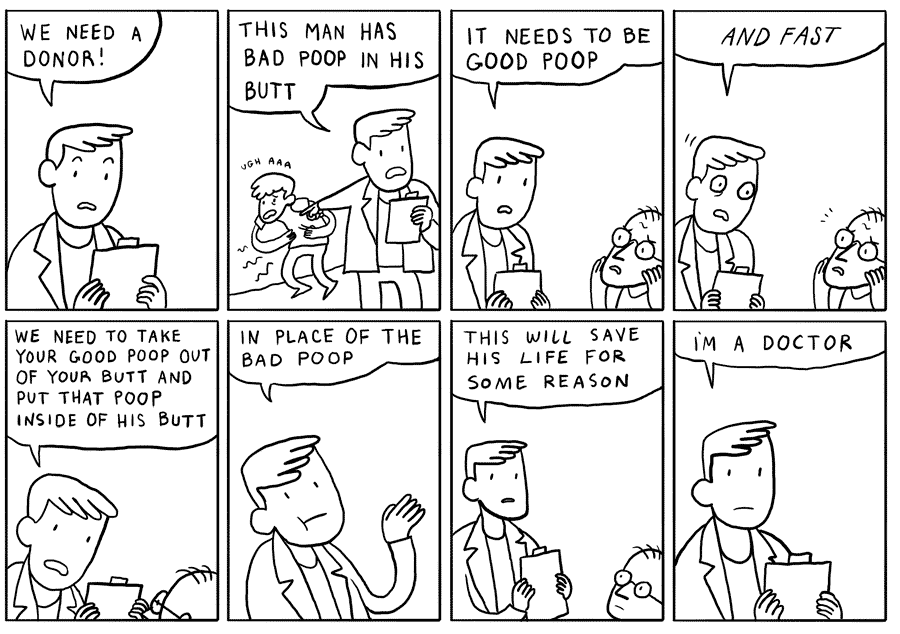 |
| FARE's name change ruined my awesome pun headline |
The poop had definitely been circulating in the news all summer, with the popular science journals joining in:
- Why Smokers Gain Weight When They Quit Smoking: Changes in Intestinal Flora
- Gut Infections Keep Mice Lean
- Colorectal Cancer May Be Triggered By Mouth Bacteria
- Bacterial Molecules May Prevent Inflammatory Bowel Disease
- Human Microbiome Livestream channel
- Some of My Best Friends Are Germs (New York Times - excellent summary)
We ran into the cousins in the parking lot and introductions and hugs were passed around. Just as I'm opening the door to the restaurant, my mom says "so FAB, tell my cousins what you were just telling me about transferring pooh into people's colons."
Not the ideal way to be introduced.
But you can see the difficulty. This is an astonishing new area of exploration in science...and just not great dinner conversation. I'm going to plunge ahead anyway, but be forewarned that you might want to put your snack down before reading further.
Here's a cartoon to get us started:
 |
| From Three Word Phrase - very funny guy! |
If simply transplanting poop from a healthy person into a compromised person can have such amazing results, then why not for other conditions that involve the gut, like food allergies?
The science of all this is daunting. The human gut contains as many as 100 trillion separate types of bacteria, which is why I always giggle a bit when people talk about "probiotics" as a treatment for food allergies. Typical probiotic supplements contain only the bacteria we can grow outside the body: usually one of only FIFTEEN strains.
It's a bit like throwing dye into the ocean in the hopes of coloring it red.
It's a bit like throwing dye into the ocean in the hopes of coloring it red.
Scientists are working on categorizing these bacteria. One of the more notable efforts going on right now is called the American Gut Project. That project has already demonstrated that the gut bacteria of older vs. younger Americans, and of Americans vs. less developed countries, are vastly different. All of this comes together very well with the Hygiene Hypothesis II, which says that our decimation of gut bacteria through the use of antibacterials (including triclosan, which I've called the smoking gun for development of food allergies) is at the heart of the rise in intestinal and autoimmune disorders. Even the connection to pets and reduced food allergies makes sense. When we pet our dogs and cats and they, in turn, lick us, different types of bacteria are transferred into our bodies via the skin. Families with pets have different gut bacteria than families without.
As with everything I read, I am extremely impatient to just cut to the chase. If fecal transplant has the potential to mitigate food allergies, where do we sign up?
At the moment, fecal transplant is only officially being performed in teaching hospitals, and these facilities are starting to look over their shoulders. Right now, this is an unregulated treatment and the FDA seems to want in on the action.
On the other hand, if you are adventurous, you can DIY with this helpful Youtube video:
So...all I need is a blender, a way to knock my child senseless so he doesn't know what's about to occur, and a donor! Preferably someone older, whose gut bacteria were colonized before the introduction of antibiotics and the advent of infant formula. Someone in excellent health with an appropriate body weight, who has used only limited antibiotics over the course of their life.
Or...maybe I should hold out for the poop pill. At least I could still look my father-in-law in the eye, come Thanksgiving.






